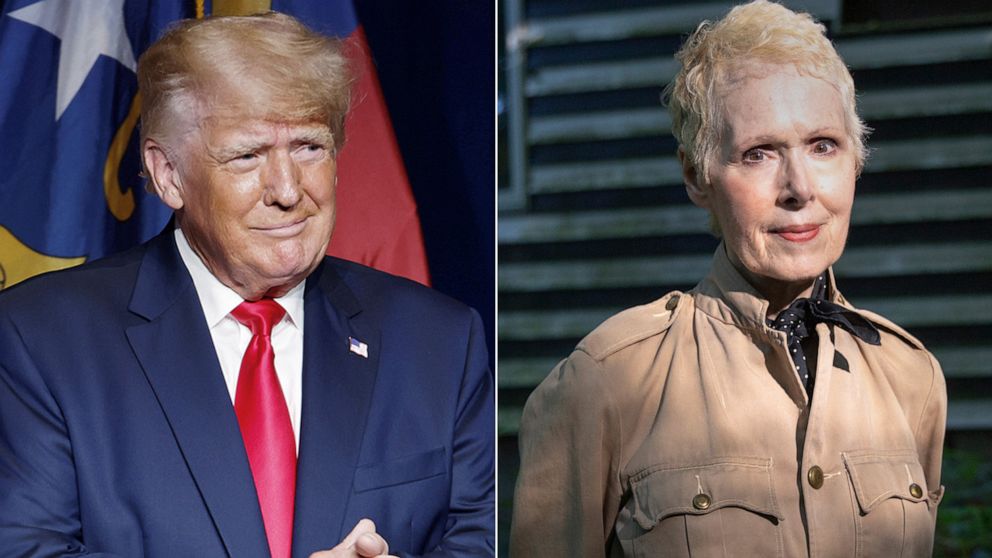E. Jean Carroll's suit against Trump complicated with new ruling
A federal appeals court issued a ruling Tuesday that could delay a former magazine columnist's defamation lawsuit against former President Donald Trump.
The 2nd U.S. Circuit Court of Appeals overturned an earlier district court decision that said the United States government could not substitute for Trump as a defendant in the lawsuit brought by E. Jean Carroll.
Carroll, a former columnist at Elle, has said she kept the dress she wore the day Trump allegedly sexually assaulted her in a dressing room at Bergdorf Goodman in the 1990s, a claim he has denied. She sued him in November 2019 after he denied raping her by questioning her credibility and demeaning her personal appearance. Trial had been scheduled for February.
Trump said he was acting in his capacity as president when he denied her claim and therefore was immune from Carroll's lawsuit under the Westfall Act, which shields federal employees from personal liability.
The district court said Trump was not an employee of the government as defined in the act and, regardless, had not acted within the scope of his employment when he allegedly defamed Carroll.

In reversing and vacating the decision, the appellate court said the president of the United States role "fits comfortably" within the statute, but did not reach the question of whether his public statements denying Carroll’s allegations occurred within the scope of his employment.
"President is a government employee in the most basic sense of the term: He renders service to his employer, the United States government, in exchange for a salary and other job-related benefits," the opinion said.
In a responding statement, Carroll's attorney, Roberta Kaplan, pointed to the dissenting opinion from Judge Denny Chin: "As Judge Chin, the only 2nd Circuit judge to reach the merits, explained in his powerful opinion, Donald Trump was not acting within the scope of his duties as president when he defamed our client, E. Jean Carroll because he was not serving any purpose of the federal government and because the comment 'she's not my type' is not something one would expect the president of the United States to say in the course of his duties."
Alina Habba, an attorney for Trump, said in a statement, "We are extremely pleased with the 2nd Circuit's decision today in reversing and vacating the District Court's finding in this matter. This decision will protect the ability of all future presidents to effectively govern without hindrance."
The 2nd Circuit, however, deferred the question of whether Trump's statements denying Carroll's sexual assault allegations occurred within the scope of his employment and whether the government is entitled to substitute for him at trial. Instead, the court asked the D.C. Court of Appeals to render a judgment because the question depends on that court's interpretation of employment law.
Both Habba and Kaplan said they were "confident" the D.C. Court of Appeals would agree with their respective sides.
Carroll previously announced her intention to sue Trump in state court for battery and intentional infliction of emotional distress under New York state's Adult Survivors Act, a law recently signed by Gov. Kathy Hochul that gives adult accusers a year from Nov. 24 to bring claims regardless of when the alleged sexual misconduct happened.




